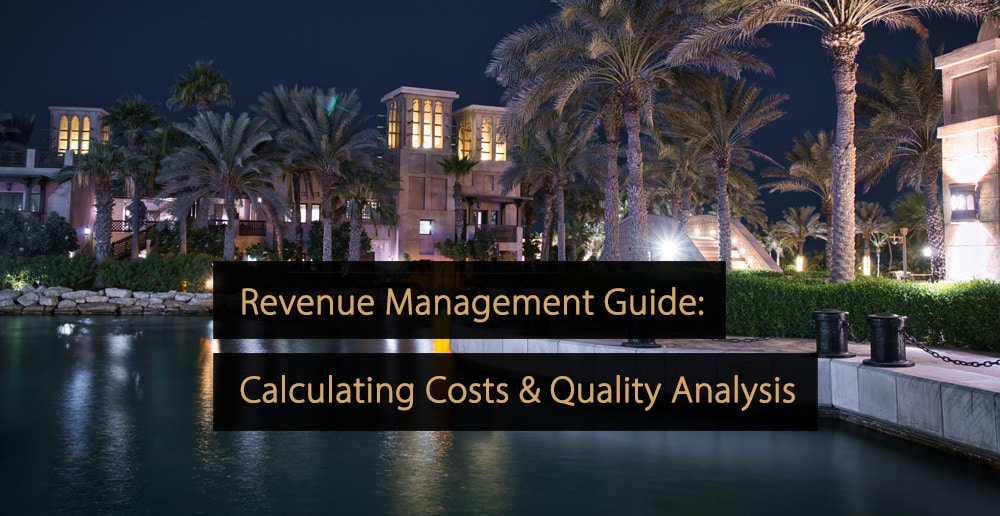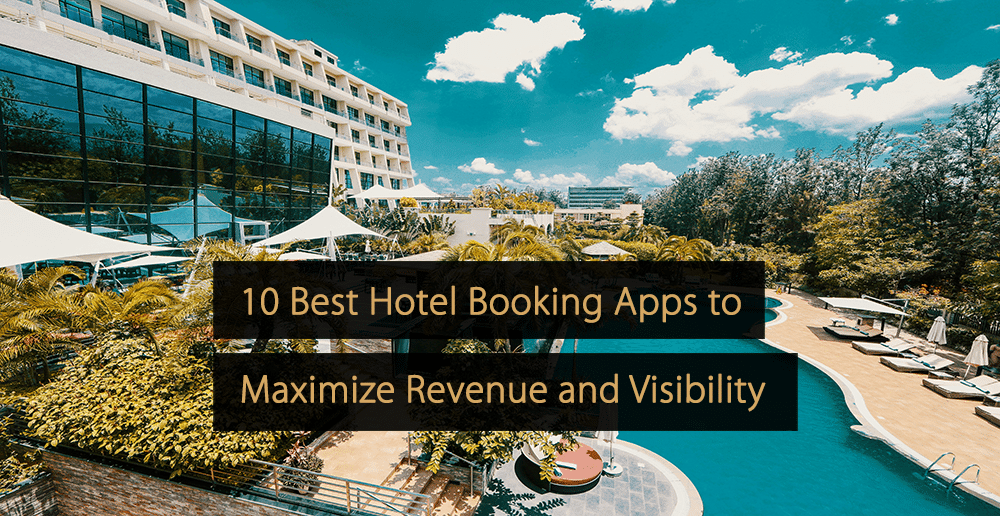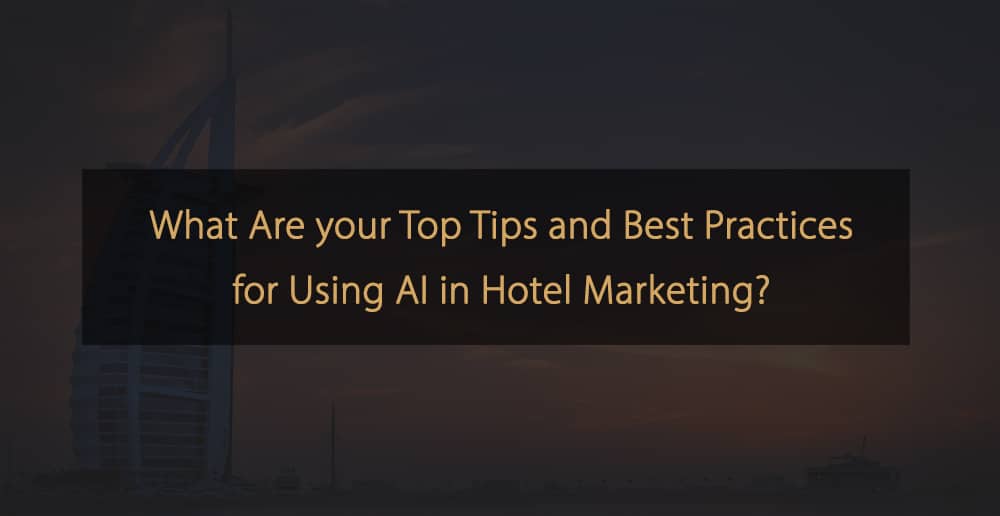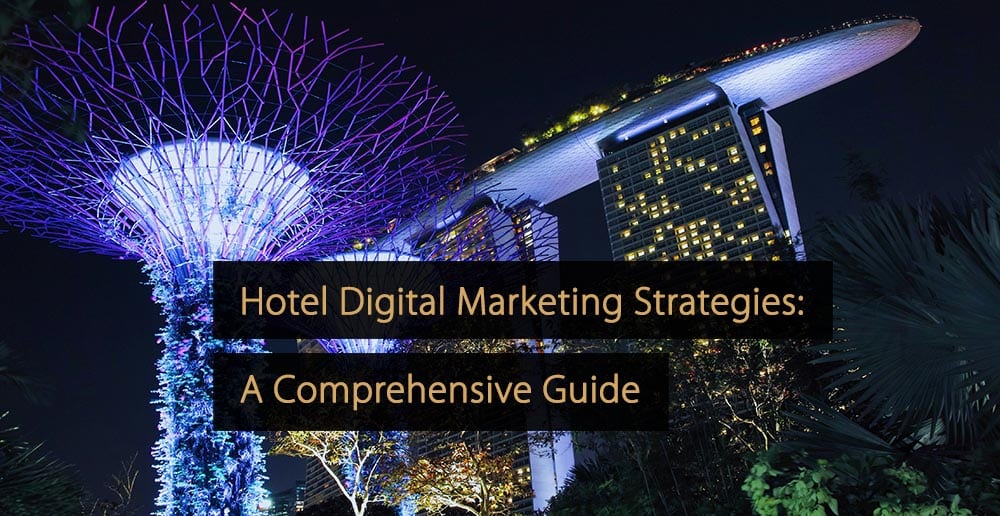Question for Our Hotel Marketing Expert Panel
Beyond ROAS (Return on Ad Spend), which digital marketing KPIs best help hotels track performance and align with their commercial strategy? (Question proposed by Stephanie Smith)
Industry Expert Panel
Our Industry Expert Panel exists out of professionals within the hospitality & travel Industry. They have comprehensive and detailed knowledge, experience in practice or management and are forward-thinking. They are answering questions about the state of the industry. They share their insights on topics like revenue management, marketing, operations, technology and discuss the latest trends.
Our Marketing Expert Panel
- Moriya Rockman – Chief of Marketing, Smiling House Luxury Global
- Michael J. Goldrich – Founder & Chief Advisor, Vivander
- Thom de Graaf – Online Marketing Specialist, The Orange Studio
- Kamila Zawadzka – Marketing Lead, The Orange Studio
- Luminita Mardale – Director Of Marketing And Business Development, Vienna House
- Max Starkov – Adjunct Professor Hospitality Technology, New York University
- Tamie Matthews – Revenue, Sales & Marketing Consultant, RevenYou
- Stephanie Smith-Sparks – Founder, Cogwheel Marketing
- Ask Our Panel a Question
- Join Our Expert Panel
“In addition to ROAS, there are several KPIs that are crucial for analysing hotel performance and aligning with commercial strategies. Customer Acquisition Cost (CAC) is an important metric, as it tracks the efficiency of marketing spend in acquiring new guests. A high CAC may indicate inefficient spending, while a lower CAC suggests more effective campaigns.
Average Daily Rate (ADR) provides insight into pricing strategies and revenue generation, helping to assess how marketing campaigns impact room rates. Similarly, the Occupancy Rate shows how effectively rooms are being sold, directly reflecting the success of marketing initiatives, especially during targeted promotions or seasonal campaigns.
Additionally, Guest Engagement Metrics – such as website traffic, time on site, and social media interactions – are key to understanding how potential guests are engaging with content, particularly for luxury properties where personalisation plays a major role.
Lastly, Customer Lifetime Value (CLV) is essential to track, as it measures the long-term value of guests, emphasising the importance of not only attracting but retaining high-value clients. By monitoring these KPIs collectively, hotels can make more informed decisions about their marketing strategies and overall business performance.”
“From my work with hotels on direct channel growth, I’ve found that while ROAS is important, it’s only one piece of the strategy. The most valuable KPIs combine commercial impact with insights into the customer journey. I focus on Direct Channel Contribution and the Direct vs. OTA booking ratio to assess channel health. Customer Lifetime Value (CLV) from digital channels, paired with repeat booking rates, shows if we’re bringing in the right guests. For website effectiveness, I track revenue per visitor and look-to-book conversion rates by segment and review personalisation lift metrics to validate targeting.
Composite metrics add real insight. I recommend a “Direct Channel Health Score” that benchmarks performance against both local and similar hotels worldwide. This approach helps hotels gauge not only their direct booking success, but also their market position.”
“After the introduction of multi-channel digital marketing, tracking users online was the norm, and we had the opportunity to directly attribute all revenue to clicks, seeing the direct impact of all money invested – or in other words, the ROAS.
However, we are entering a new era of online privacy, with strict GDPR laws and a low-cookie future spearheading user preference for no tracking. This means the ROAS formula is no longer the most effective way to measure campaign performance. Moving forward, brands must take a more holistic approach with their marketing activities, investing in measurable KPIs that directly impact revenue such as awareness, web and booking engine traffic.”
“RevPAR, ADR and Occupancy are some of the most important KPIs that help hotels to optimise revenue, especially when we have a high/low season fluctuation. Another important factor is WCR (Website Conversion Rate) that helps hotels to measure the percentage of website visitors who complete a booking.
The Direct Booking Ratio (DBR) helps to see the percentage of total bookings that come directly to the website, bookings that are more profitable than reservations made via an OTA with a high commission.”
“In addition to ROAS, the most important KPI is the website conversion rates!
Hoteliers are spending their limited marketing dollars on SEO, paid search, metasearch, online media, PR, and social media in order to bring users to the hotel website, and allowing 98%-99.5% of them not to book. A complete waste of precious resources!
The average hotel website conversion rate (bookings divided by unique monthly visitors) is typically below 2%. Out of 100 people who visit your hotel website, two or less will book, and 98 or more will abandon your website and make a booking elsewhere – either with your competitors or with the OTAs.
The situation is even worse with independent hotels, where conversion rates are even lower and range between 0.5% -1.5%. Most hoteliers do not even know what the conversion rates are on their property websites.
What are the reasons for these exceptionally low conversion rates?
Mobile-last property websites, poor user experience (UX), sub-standard CMS and CRS technologies, poor visual and textual content, lack of merchandising strategy and technology, lack of reward or guest appreciation program in place, market and rate disparity, lack of enticing offers or compelling reasons to even enter the booking engine process (less than 1/3 of website visitors do so), etc., are only some of the reasons for these poor results.
Now imagine the monetary benefit from improving the conversion rate from a property with an ADR of $200, a website with 25,000 unique monthly visitors, and 1.5% conversion rate. If the conversion rate increases by 25%, this will result in additional website revenue of $450,000 per year. A 33% increase will bring an additional $600,000 per year. Just imagine what any hotelier could do with these additional direct revenues? Hire much-needed staff members, implement new much-needed technologies like cloud PMS, mobile check-in, guest issue resolution and messaging, etc.”
“RevenYou works with smaller, independent hotels and motels – often with limited marketing budgets – and the importance of brand awareness growth is paramount. An appealing and informative website, complemented by engaging social media content development, assists travellers who are in the research phase – with the ultimate objective to transition them from consideration to conversion with an accommodation booking.
RevenYou incorporates several KPIs within our monthly reporting:
- Impressions, showing monthly growth or decline, allows us to track the success of content developed on behalf of our clients – while ensuring we can easily identify if an element of their marketing strategy is not working and needs to be reviewed.
- An additional KPI that we monitor is the open and click-through-rates of the newsletters that RevenYou prepares for our clients. Higher open and CTR’s confirm that we are developing well-targeted and appealing content that is relevant to the audience we are speaking with. Reviewing these metrics after each campaign is essential and allows us to continually finesse the content and ensure the frequency of engagement is at the right level.”
“I submitted this question, and am excited for the responses. I like to look at channel mix metrics as well as looking for overall website lift. I also like to benchmark certain KPIs to see where an acquisition strategy might be broken.
But, ideally, we truly have commercial strategy if we tie in our marketing to our RMS systems to see accelerated transient market share and use AI to understand the impact of different marketing initiatives. Anyone doing that yet? Well, I’m on it!”
Ask a Question & Join Our Expert Panel
Would you like a question to be answered by our Industry Expert Panel? Or would you like to join our community of experts and share your experience, insights, and knowledge with fellow industry professionals? Via the buttons below you can submit a question or submit a request to become part of our expert panel.
More Tips to Grow Your Business
Revfine.com is the leading knowledge platform for the hospitality and travel industry. Professionals use our insights, strategies, and actionable tips to get inspired, optimize revenue, innovate processes, and improve customer experience.Explore expert advice on management, marketing, revenue management, operations, software, and technology in our dedicated Hotel, Hospitality, and Travel & Tourism categories.













Leave A Comment